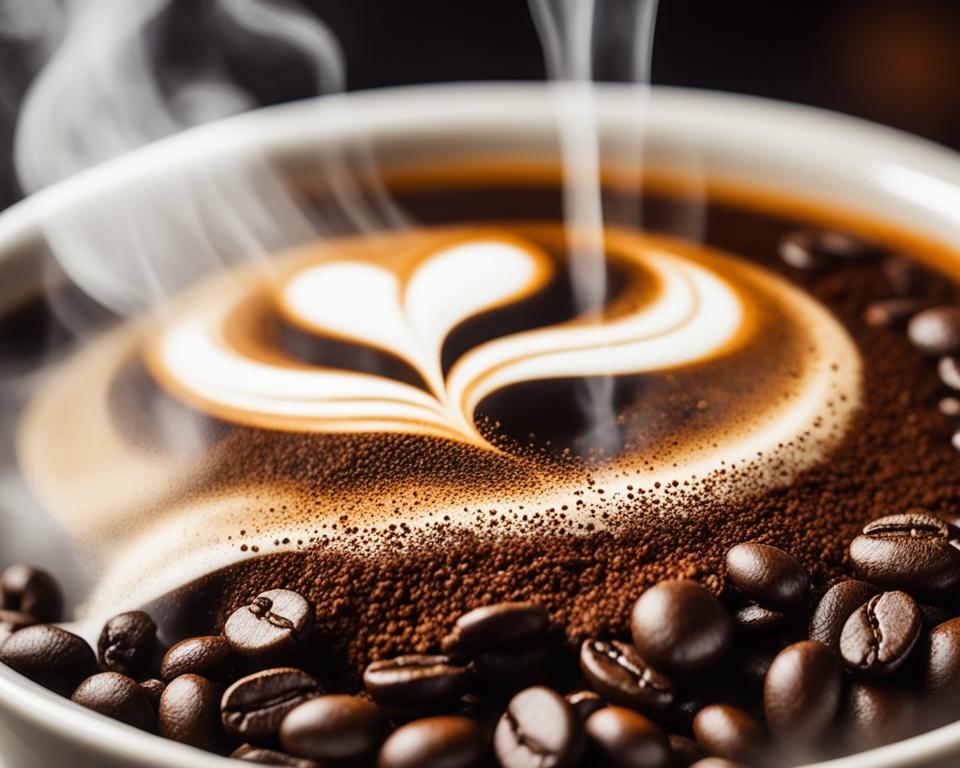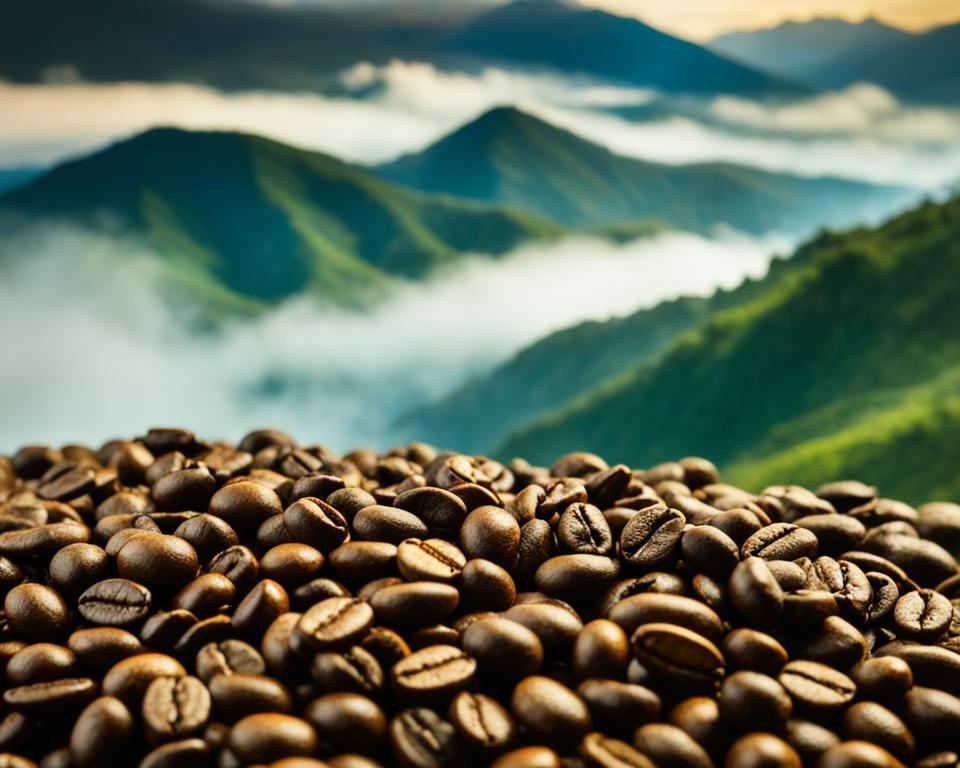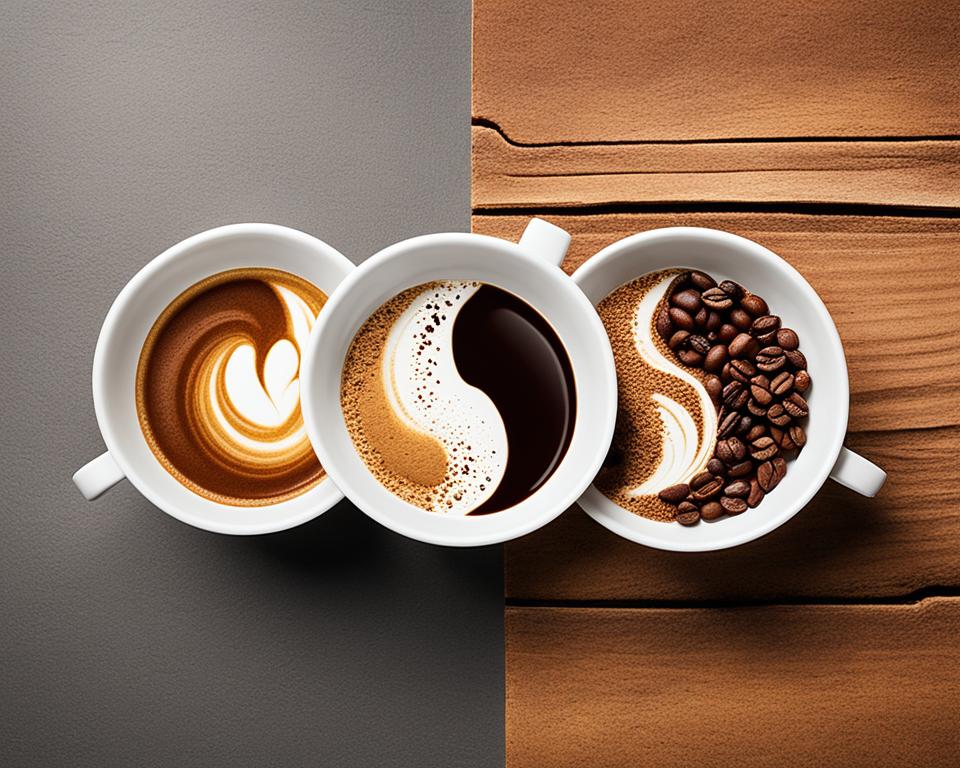Did you know that the global market for premium coffee is projected to reach $83.6 billion by 2025? That’s a staggering figure, revealing just how much people value exquisite coffee flavours and a luxury coffee experience. Gourmet coffee, often synonymous with premium or specialty coffee, represents the pinnacle of coffee quality.
This isn’t your standard cup of joe; it’s an upscale experience for coffee connoisseurs seeking refined taste.
What sets gourmet coffee apart? It all starts with superior bean quality. According to the Specialty Coffee Association, these beans must pass a stringent grading protocol.
The result is a brew with unique artisanal brews that stand out with their distinct flavours.
Consumer trends by the National Coffee Association USA show that more people are turning towards higher-quality coffee. And I can’t blame them! Once you’ve tasted the layers of flavour in a well-crafted cup of gourmet coffee, there’s no going back.
Not to mention, research studies highlight that our taste preferences lean towards these rich, complex profiles. Gourmet coffee isn’t just a drink; it’s an experience that engages all your senses.
Trust me, once you get a taste of this luxury coffee experience, you’ll understand why it’s worth every penny.
The Origins of Gourmet Coffee
Understanding the origin is a journey through time. With roots stretching back to ancient coffee forests in Ethiopia, it has a rich and storied past.
This remarkable journey involves the spread of fine coffee appreciation across different continents.
Historical Background
The history of coffee can be traced back to the 9th century, when ancient Ethiopian coffee forests were the primary source. Legend has it that an Ethiopian goat herder named Kaldi discovered coffee after noticing the energising effects of the berries on his goats.
By the 15th century, coffee cultivation and trade began on the Arabian Peninsula. It rapidly spread to Persia, Egypt, and the Ottoman Empire.
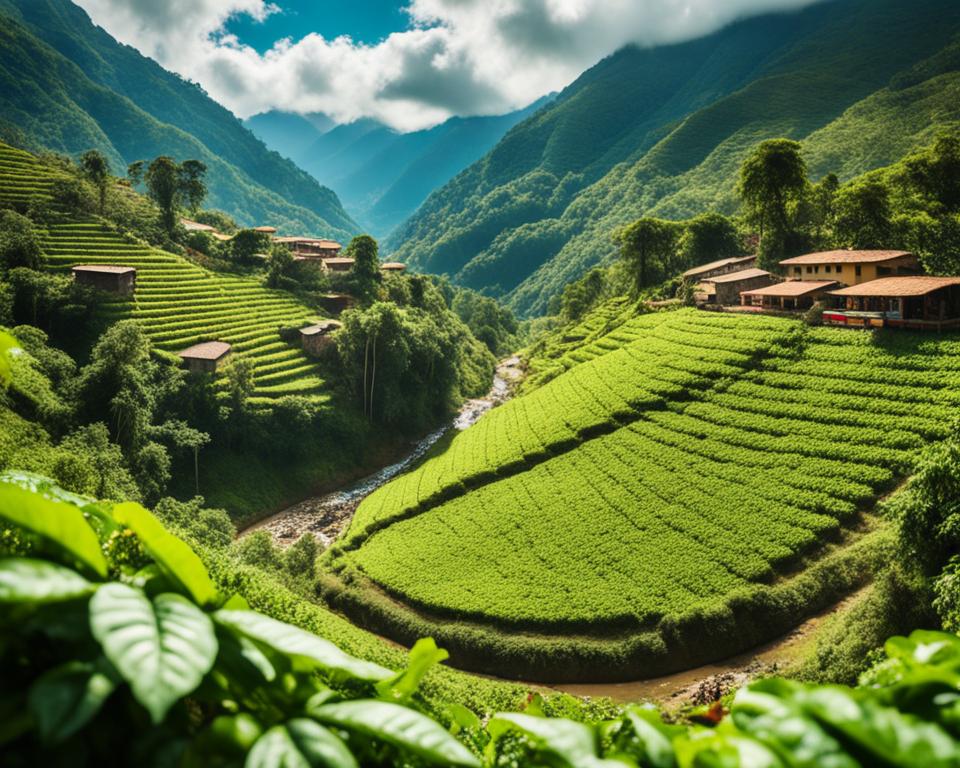
The 17th century saw coffee’s introduction to Europe, leading to a boom in coffee houses across cities like Venice and London. Each of these regions contributed unique methods for cultivating and savouring the beverage we cherish today.
Geographical Influences
Coffee-growing regions play a significant role in the quality and flavour of gourmet coffee. High altitudes, favourable climates, and rich soils make some regions more suitable for coffee cultivation.
- Colombia: Renowned for its rich and mild flavour, the country’s mountainous terrain and tropical climate provide ideal conditions.
- Ethiopia: Often considered the birthplace of coffee, its diverse and distinctive flavours stem from varied growing regions and traditional cultivation methods.
- Jamaica: Known for Jamaica Blue Mountain Coffee, famous for its smooth, mild flavour and slightly sweet undertones.
Studies by agronomists show that geographical factors significantly affect the coffee’s flavour profile. Enthusiasts often seek out beans from these specific coffee-growing regions, valuing the unique taste attributes they offer.
The craft of producing top-tier gourmet coffee is indeed a beautiful blend of history and geography.
What sets gourmet coffee apart?
Ever wondered what makes gourmet coffee stand out? It’s largely due to the focus on high-quality coffee beans and innovative processing methods that bring out exceptional flavours.
Let’s break down the elements that set gourmet coffee apart from the rest.
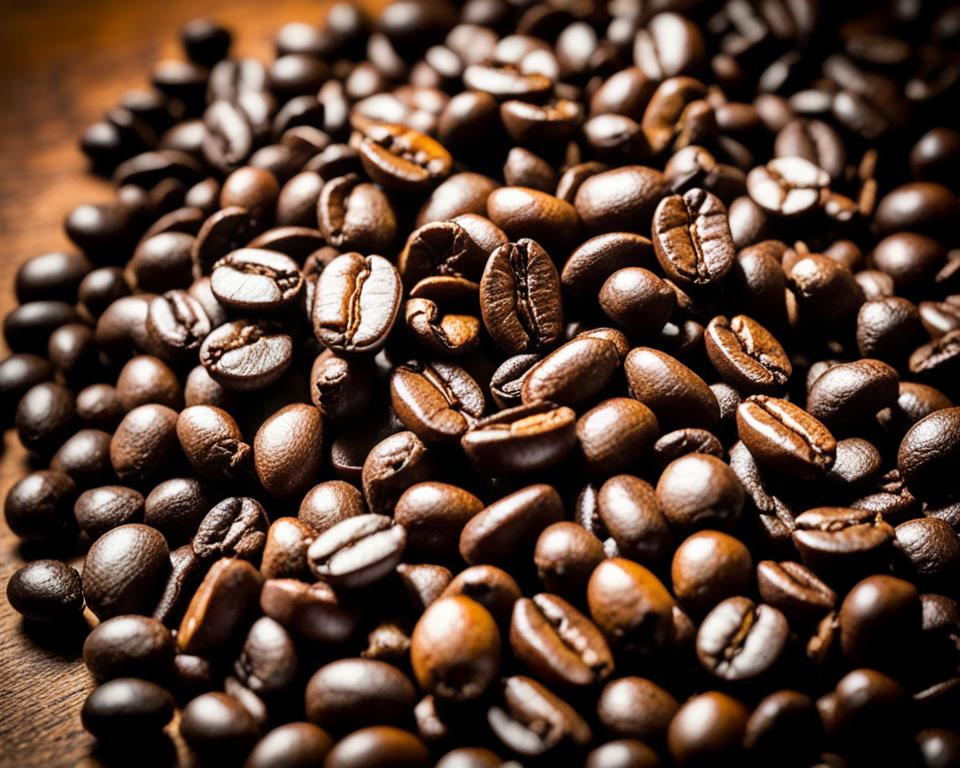
Bean Quality and Selection
Gourmet coffee starts with selecting the best beans. Specialty coffee producers often choose Arabica beans, prized for their superior taste compared to other varieties.
The emphasis is on single-origin and estate-grown beans, which offer unique flavor profiles based on where they’re grown. These high-quality coffee beans are meticulously chosen to ensure minimal imperfections and maximum flavor.
Processing Methods
Next, let’s talk about the artistry involved in specialty coffee processing. Producers use various methods, like wet or dry processing, to influence the final taste.
The careful handling of artisanal coffee techniques ensures that the beans retain their distinct characteristics. These innovative methods contribute to the unique flavour profiles that make each cup of gourmet coffee truly memorable.
The combination of high-quality coffee beans and advanced processing techniques highlights why gourmet coffee is a favourite among connoisseurs.
It’s this dedication to quality and craftsmanship that makes every sip a delightful experience.
Is Geisha Coffee Considered a Type of Gourmet Coffee?
Is Geisha Coffee considered a type of gourmet coffee? Absolutely! Renowned for its floral aroma and vibrant acidity, Geisha coffee stands out in the specialty coffee world. Enthusiasts flock to experience its distinct taste profile. For coffee lovers looking for something extraordinary, it’s time to discover the unique flavors of geisha.
How to Brew the Perfect Cup of Gourmet Coffee
Brewing the perfect cup of gourmet coffee might seem overwhelming, but it doesn’t have to be. It’s an art that hinges on a few key factors: water quality, temperature, grind size, and brewing time.
Mastering these elements can significantly enhance your coffee experience at home.
I always start with high-quality water. The purity and mineral content of your water can make or break your brew. I use filtered water to ensure I’m getting the best out of my premium coffee beans.
The right temperature is crucial. Aim for water that’s just off the boil, around 200°F, to extract the full range of flavors without burning the coffee.
Grind size matters too. Different brewing techniques require different grinds. For a pour-over, a medium-fine grind works best. A French press needs a coarser grind, while espresso demands a very fine grind.
I experiment with grind sizes to find the sweet spot that produces the perfect cup every time.
Brew time is the final touch. Each method has its own recommended duration. Pour-over usually takes about three minutes, French press around four, and espresso can be as quick as 25–30 seconds. Using a timer helps me remain consistent and gets the best flavor out of my gourmet coffee.
Methods like the pour-over, French press, and espresso extraction are popular for a reason. They bring out the unique characteristics of gourmet coffee, whether you’re savoring a bright Ethiopian or a rich Colombian.
With practice and a little patience, you can perfect your coffee preparation and enjoy a luxurious brew right at home.
FAQ
What is gourmet coffee?
Gourmet coffee, often referred to as premium or specialty coffee, stands at the pinnacle of coffee quality. This luxurious coffee experience is defined by superior bean quality, unique flavor profiles, and meticulous production processes, making it a favorite among coffee connoisseurs.
How does gourmet coffee differ from regular coffee?
The difference lies in the selection of high-quality beans, distinct flavor profiles, and artisanal brewing techniques. Gourmet coffee uses superior beans that undergo specific processing methods, resulting in an exquisite and refined taste.
Where does gourmet coffee originate from?
The origins of gourmet coffee can be traced back to ancient coffee forests in Ethiopia. Over time, the appreciation for high-quality coffee spread across the Arabian Peninsula, Europe, and the Americas, influenced by historical cultivation methods and geographical factors.
What factors affect the flavor of gourmet coffee?
Several elements, such as altitude, climate, and soil composition in coffee-growing regions like Colombia, Ethiopia, and Jamaica, play a significant role in determining the bean’s quality and flavor. These factors contribute to the unique taste profiles associated with gourmet coffee.
What makes gourmet coffee beans superior?
Gourmet coffee beans are typically high-grade Arabica beans known for their exceptional taste and minimal imperfections. These beans are often single-origin or estate-grown, ensuring a distinctive flavor profile that sets them apart.
What processing methods are used for gourmet coffee?
Specialty coffee producers use innovative and careful processing methods, such as wet or dry processing. These methods are carefully chosen to enhance the unique flavor profiles and guarantee a high-quality product.
How can I brew the perfect cup of gourmet coffee at home?
Brewing the perfect cup of gourmet coffee involves considering water quality, temperature, grind size, and brewing time. Popular methods include pour-over, French press, and espresso extraction. These techniques require precision and patience to make the most of your premium beans.
Why should I choose gourmet coffee over regular coffee?
Choosing gourmet coffee provides a more refined and upscale coffee experience. With its superior bean quality, unique flavor profiles, and meticulous production processes, gourmet coffee caters to those who appreciate and seek a higher-quality brew.

